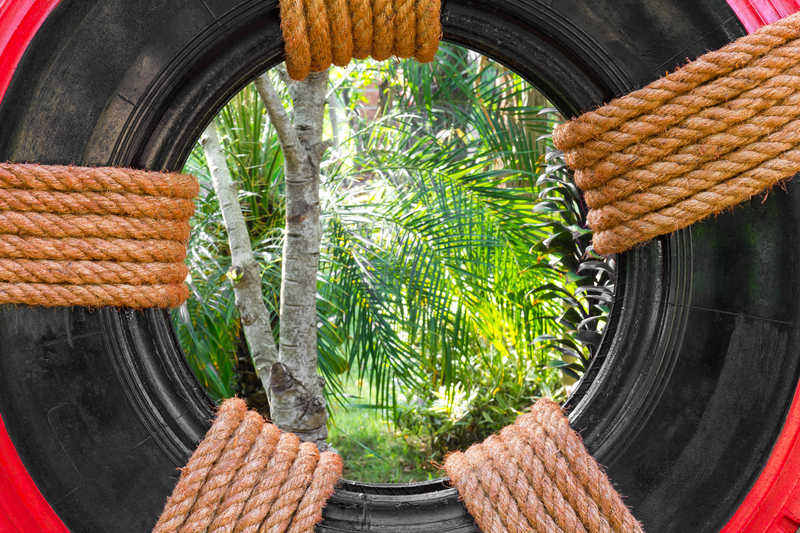Hard Rubbish Made Simple: Steps to Identify and Dispose
Dealing with hard rubbish can be daunting. However, understanding what constitutes hard rubbish and knowing how to dispose of it can make the process much simpler and more efficient. This guide will equip you with essential knowledge on how to manage hard waste responsibly and effectively.
What is Hard Rubbish?
Hard rubbish refers to bulky waste items that cannot be disposed of in your regular waste collection. They are items too large for normal bins and often require special collection or disposal methods. Common examples of hard rubbish include:
- Old furniture
- Appliances and white goods
- Mattresses and bed frames
- Branches and garden waste
- Electronic waste

Steps to Identify Hard Rubbish
Step 1: Assess the Size and Type
Before disposing of your rubbish, evaluate its size and type. Items that do not fit in standard waste bins and are made of materials such as metal, wood, or electronics are generally classified as hard waste. These include broken appliances, unwanted furniture, and yard waste too large for composting.
Step 2: Check Local Council Guidelines
Local councils often have specific guidelines regarding what they classify as hard rubbish. Visit your local council's website or contact them for details on acceptable items. This information is crucial to ensure proper disposal and avoid any unnecessary fees or violations.
Step 3: Evaluate Item Condition
Consider whether items are still usable. If they are in good condition, you may opt to recycle, donate, or sell them instead of treating them as waste. Many communities have second-hand stores or donation centers that accept such items.
Step 4: Separate Recyclable Materials
Before arranging disposal, segregate recyclable materials. Items like metal, plastic, and electronics often have parts that can be recycled. This not only reduces environmental impact but is also encouraged by most waste management services.
Effective Disposal of Hard Rubbish
Option 1: Council Collection Services
Many councils offer hard waste collection services periodically or on demand. Booking a pick-up can be done online or via phone through your local council's waste management division. Ensure your items are sorted and stacked according to their guidelines for efficient service.
Option 2: Yard Waste Collection
For garden-related hard rubbish, such as branches and yard clippings, specific green waste services are available. These services often require bundling the waste in a specified manner for pickup.
Option 3: Waste Transfer Stations
In cases where council services are unavailable, or if immediate disposal is necessary, you can transport the waste directly to a waste transfer station. Verify the operating hours and any tipping fees that may apply before heading out. Waste stations typically handle all types of hard rubbish, including electronic waste and building materials.
Option 4: Hire a Skip Bin
If you have a substantial amount of hard waste or are undergoing a renovation project, renting a skip bin may be a convenient option. These large containers can hold significant volumes of waste and are picked up by the provider when full.

Tips for Responsible Hard Rubbish Disposal
Donate or Sell Usable Items
Before considering disposal, explore opportunities to donate or sell usable items. Platforms like online marketplaces, garage sales, and charity shops are great for finding new homes for your unwanted belongings.
Avoid Illegal Dumping
Illegal dumping of hard waste is a significant environmental and community problem. Not only can it incur heavy fines, but it also has negative impacts on the environment. Always use legitimate disposal methods and report any illegal dumping activities in your area to the appropriate authorities.
Engage in Community Cleanup Drives
Look out for community-driven cleanup initiatives. Participating in local efforts not only helps keep neighborhoods clean but also provides a communal aspect to waste management. It's a great way to contribute to the environment and meet like-minded individuals.
Conclusion
With an understanding of what constitutes hard rubbish and the proper disposal options available, you are better equipped to handle bulky waste responsibly. Following the outlined steps ensures environmental conservation and compliance with local regulations. Whether it's through recycling, donation, or organized collection, responsible waste management begins with informed decisions. Make hard rubbish disposal simple by staying informed and proactive in your waste practices.
By adhering to these guidelines, you're contributing to a cleaner, more sustainable environment and ensuring your community remains tidy and inviting for everyone. Share this guide with others seeking effective waste management solutions to expand the reach of these beneficial practices.